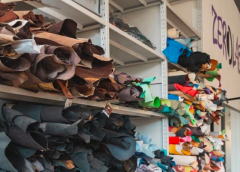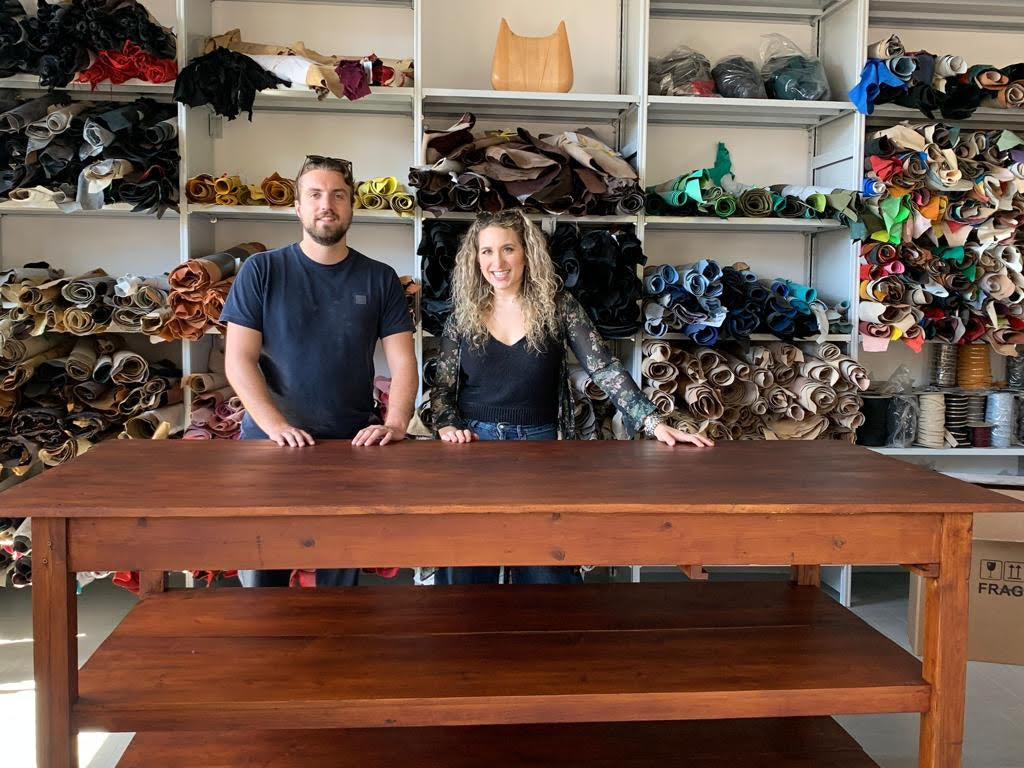
Gucci Wants to Clean Up Fashion’s Dirty Laundry
[ad_1]
Count in one leading luxury fashion house is eager to change its image and shrink its environmental footprint. Last week, Gucci announced a new strategic partnership with the Ellen MacArthur Foundation, an NGO that has become a leading authority on circularity. The foundation says it will support Gucci as it seeks to scale circular design principles. In a statement, Gucci CEO Mario Bizarri said that the partnership would “further strengthen our commitments to circularity and regenerative agriculture.”
The fashion industry’s environmental impact is hard to overstate: it is an enormous source of waste and pollution, accounting for 10 percent of global CO2 emissions, 20 percent of plastic produced and 92 million tons of waste annually. Perhaps unsurprisingly, 85 percent of clothing thrown away each year in the United States goes into landfills or incinerators.
While recent efforts are admirable, Gucci and the other power players in the luxury fashion space have a long way to go to meaningfully reduce the enormous amount of waste and pollution that these companies keep generating. To that end, circularity is critical to achieving these brands’ goals.
Designing out waste
Circular design seeks to eliminate waste from all aspects of a product’s life cycle, from sourcing materials to planning for a product’s end-of-life. Circularity is critical for the fashion industry, which has traditionally operated in a highly linear manner, sourcing virgin materials for production and ending with products in landfills.
For example, polyester, the most commonly used textile for clothing production, is a leading contributor to microplastic pollution and is an ongoing demand driver for fossil fuels, a key component of the synthetic fiber. Polyester fabric is also notoriously difficult to recycle, which is one of the reasons why, according to the Ellen MacArthur Foundation, less than 1 percent of clothing that is collected for recycling is actually recycled into new clothing.
Through Gucci’s partnership with the Ellen MacArthur Foundation, the fashion house hopes to design and produce its products in a new way. The company already has a goal of 100 percent sustainably sourced materials by 2025, and it is developing partnerships with resale outlets and socially-beneficial businesses that can give Gucci products and byproducts a new life.
New frontiers in fashion circularity
Gucci is a global behemoth with resources to fund its sustainability aims. However, smaller firms can also provide critical lessons in sustainable production.
Just a short walk from Gucci’s global headquarters in Florence, Italy is Zerolab, the first leather recycling center and circular design-focused incubator in Florence. An innovative leather waste collection and sorting center, Zerolab also functions as a training facility for leather skills and an incubator for emerging designers focused on circular design.

Cassandra Kane, Zerolab’s Chief Innovation Officer, has a front-row seat to luxury fashion’s move toward circularity. She said, “As luxury brands have exploded in growth over the last thirty years, their supply chains have become industrialized and globalized, and that explosive production is what can cause once-artisanal production to become less sustainable.” In 2021, Gucci recovered 290 tons of leather for upcycling, but Kane noted that in Tuscany alone, where Gucci is headquartered, “more than 265 tons or over 400,000 pounds of leather waste are generated at the factory level each year.”
The future of high fashion for Gucci and other fashion houses
While the global fashion industry is plagued by overproduction of cheap, synthetic materials, certain players in the industry have further externalized their waste problem by dumping or burning their excess materials. Nevertheless, if industry leaders like Gucci can innovate circularity into luxury designs, then there’s reason to hope that they can pave the way for other fashion brands to follow.
Kane is optimistic. “Turning the tide on the production practices of global brands is not something that can happen overnight. Gucci has made some giant leaps quite quickly that other brands can replicate,” she said, adding, “Luxury brands like Gucci are leading the way in investing in sustainable and regenerative technologies, and partnering with experts like the Ellen MacArthur Foundation is a great step in solving the issues. Across the industry, when the luxury sector invests in new technology, that tech eventually trickles down throughout the wider industry.”
When asked about the future of sustainable fashion, Kane is hopeful. She told TriplePundit, “The new definition of luxury will be more than just beautiful artisanal products. It will be products that are made from circular, regenerative and ethical materials through a production process that doesn’t harm our planet, and maybe even supports it.”
Image credits: Zerolab
[ad_2]
Source link


